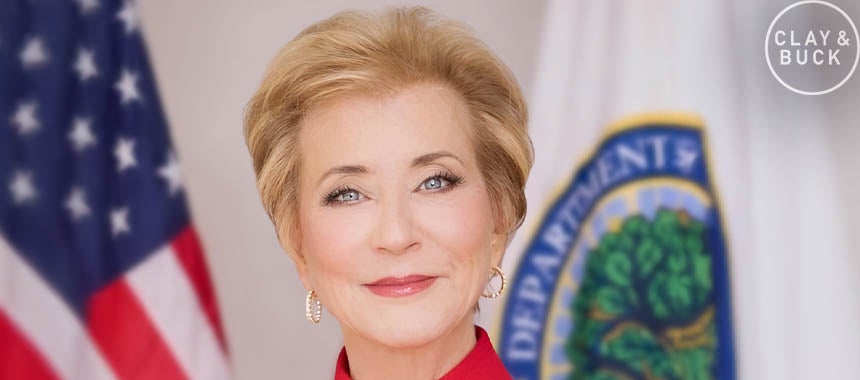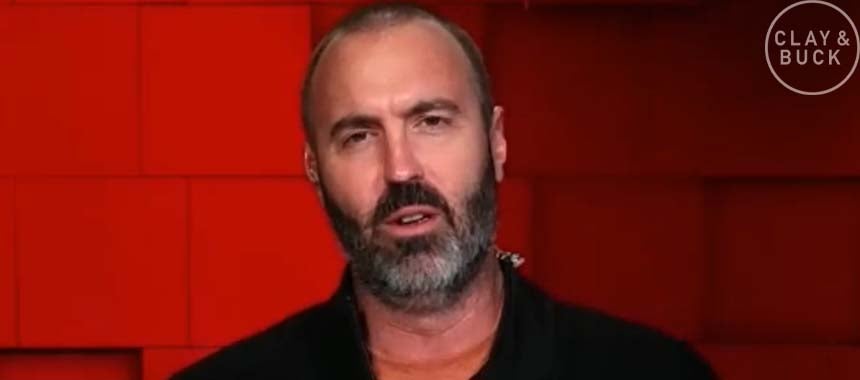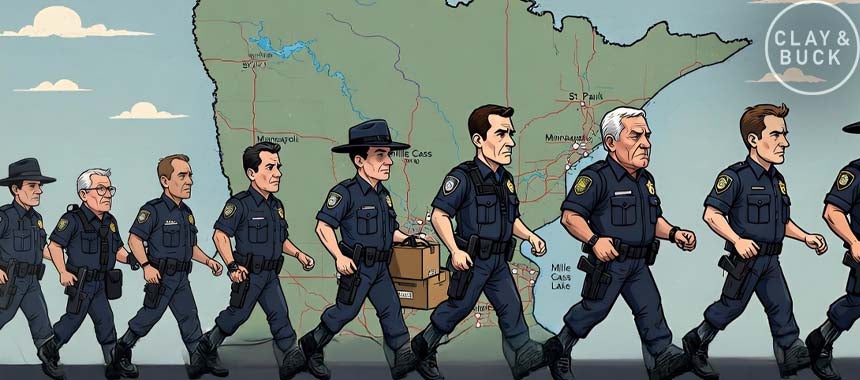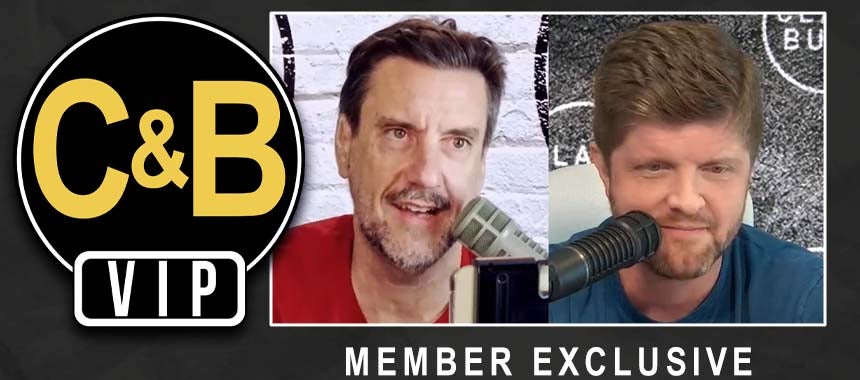Police Admit They Made the Wrong Decision, C&B Callers React
27 May 2022
CLAY: I want to play this cut again. In retrospect, they say it was now the wrong decision not to have breached the door sooner. This is the director of Texas Department of Public Safety Steven McCraw, and we will then take a couple more of your calls from people who have been involved in training for situations like these, trying to analyze what went so wrong in terms of the response in Texas. Here is that cut. Cut 17, a little bit earlier, listen.
MCCRAW: The decision was made on the scene. I wasn’t there. But the same point in time, you know, a decision was made that this was a barricaded-subject situation and was time to retrieve the keys and wait for a tactical team with the equipment to go ahead and breach the door and take on the subject at that point. That was the decision. That was the thought process that particular point in time.
With the benefit of hindsight where I’m sitting now, of course it was not the right decision. It was a wrong decision. Very… There’s no excuse for that. But again, I wasn’t there. I’m just telling you, from what we know, we believe there should have been an entry as soon as you can. Hey, when there’s an active shooter, the rules change. It’s no longer… Okay? It’s no longer a barricaded subject, you don’t have time, you don’t worry about a matter of perimeters.
CLAY: So that is an admission, again, they got it wrong. It was the wrong decision not to have gone in. There are reports out there, by the way, that the guys who did breach the door were ready 35 minutes fully before they were allowed to go in. And again the most chilling part about all this is the 911 calls that were received. Several of you want to weigh in. Luke in Charlotte, North Carolina. He is a retired cop. Luke, when you hear these details, what is your reaction?
CALLER: Well, my reaction is that every department after Columbine was trained: There is no wait for support. The first officer on the scene enters the building, engages the shooter, draws fire. And if you get wounded and you’re not dead, you keep firing. I’m sorry. You keep him firing at you. You keep engaging him. The door… The door thing really baffles me because every patrol car I was ever in had a shotgun with double-aught buck. I guarantee you there’s not a lock in any school can withstand point-blank two rounds of double-aught buck and stay intact. That door would be open in a couple seconds.
CLAY: So when you hear that the suspect entered the school — and I appreciate the call, Luke. You’re retired Charlotte, North Carolina, police officer. When you hear the suspect entered the school at 11:33 and there are three police officers entering by 11:35, two minutes behind him, and then they fall back and set up a perimeter, that just is stunning to you as a police officer? There’s reports they were wounded. It doesn’t appear they were wounded severely. In your training you go balls-to-the-wall, you don’t stop?
CALLER: I’m either gonna die or I’m gonna win. It’s better I die than those kids die. I’m sorry. That’s my… That’s the oath you take to protect and serve. That’s why you join the police department is to protect people. I would continue the pursuit. Once he locked the door, I’d grab my shotgun and I would take the lock off with a couple of rounds of double-aught buck, kick the door open — of course, I don’t have flash-bangs or anything like a SWAT team does — and enter the room.
And I might die entering the room, but the second guy behind me might get him. But that’s just the risk. That’s why we’re police officers. That’s why we joined the force, to help the community, and I just don’t understand the withdrawal and wait for support. The first officers on scene are in command of the scene. You don’t listen to the phone or the radio and, you know, the chief says do this or that. I just say, “Sorry, Chief, I can’t hear you. I’m going.”
You know? I’m just so fed up. And part of the problem is this. I think these small departments like this little town probably aren’t trained very well and they don’t have a lot of money for training. I was in a large county sheriff’s office. They had lots of money, and we got lots of training, and this is part of the problem. And we need more money for training these small city departments on how to respond to active shooters. It’s just as simple as that. I don’t understand, I just don’t understand. Okay, I got wounded? So what? Am I bleeding? So what? Can I move my arm? Yeah. I’m gonna continue shooting. I’m sorry.
CLAY: Luke, thanks for your call and everything you did in Charlotte. Bill in Kentucky, you’re a director for security for buildings, you’re calling in based on the facts that you’re hearing. What’s your reaction?
CALLER: Well, my reaction, first of all, since I retired I’ve been substitute teaching for my grandchildrens’ middle school and looking at this issue very carefully at their school every day and one thing the school obviously had some egregious failures. The out door should never be dropped open under any circumstance, and second each classroom has to be locked anytime the students are in those classrooms.
CLAY: Thank you. We’re going to break but those with two interesting points. The door was breached and propped open so somebody could come in, and those classrooms were not locked.
BREAK TRANSCRIPT
CLAY: We’ve got Steve in Spokane, Washington. By the way, appreciate our audience in Spokane, another one of those cities where the Clay and Buck show is number one in the city. Big hoops fans, obviously, in Spokane as well. Steve, you’ve got a chilling story that you wanted to share with us.
 CALLER: Yeah, Clay. I know I’m supposed to talk as soon as you come on ’cause I listened from your sports show. But, anyway, I was in law enforcement for 12 years up in Washington and Idaho. And in 2017, my freshman daughter was involved — had a school shooting where she was at, very small school, 700 students, K through 12. No one would ever think it would happen. One student was killed and three were wounded. And one of the things that we learned in law enforcement coming out of Columbine was you always go in.
CALLER: Yeah, Clay. I know I’m supposed to talk as soon as you come on ’cause I listened from your sports show. But, anyway, I was in law enforcement for 12 years up in Washington and Idaho. And in 2017, my freshman daughter was involved — had a school shooting where she was at, very small school, 700 students, K through 12. No one would ever think it would happen. One student was killed and three were wounded. And one of the things that we learned in law enforcement coming out of Columbine was you always go in.
CLAY: Yeah. So when you hear that they allowed — and, by the way, I appreciate you calling in. When you hear that they allowed this gunman to sit inside of these classrooms armed with kids still alive in there for 75 minutes, and also that police were in that building within two minutes and then basically pulled off pursuit, as a former law enforcement officer who also has had a daughter involved in a school shooting, your reaction is what?
CALLER: I would have gone in. As a cop, I would have gone in no matter what they told me. And the only reason I couldn’t go in as a parent, the shooting up here was it was already over. But it’s just… You go in! It’s just automatic. You have to do it, and they’re taught that.
CLAY: Yeah. I appreciate your call.
BREAK TRANSCRIPT
CLAY: Jack in Adams County, Pennsylvania. You’re a police sergeant. When you hear those calls about the 911 calls, when you hear that they allowed this man to stay inside for 75 minutes when there were still kids and teachers alive in those classrooms, your thoughts are what?
CALLER: It just… It makes me want to vomit. We are trained every day — annually, biannually, tri-annually — how to take care of situations like this. And it’s unquestionable that if you’re the first on scene and there’s active shooting, an active shooter going on, that you make entry no matter what means… If you have to run a police cruiser through the front door, you make entry and neutralize that threat.
CLAY: So when you hear that police were inside two minutes — so this guy, according to the press conference, was insisted at 11:33. By 11:35, there were multiple police officers in the school pursuing him and then they just fall back and decide to set up a perimeter after exchanging gunfire with him? In your mind, that’s totally unacceptable police behavior?
CALLER: It is unacceptable police behavior. I would hope that I would never react like that. It’s a situation that I’ve not been in. But we train, like I said, tri-annually to take care of situations like this. And the ALERT training that I was involved in, it’s based out of Texas State University — it’s advanced law enforcement rapid response training — teaches this and we train with that ALERT training. It’s based —
CLAY: And the number one lesson there is engage tough shooters, go basically — sorry the phrase here — but balls-to-the-wall. If you’re a police officer and you’re responding and there’s an armed man in the school, you throw everything else out of the window and you go after that guy with the idea being maybe you can get him down, maybe he gets you down. But if he’s coming after the police, he’s not focused on kids or teachers?
 CALLER: Correct. It’s… I like your term balls-to-the-wall.
CALLER: Correct. It’s… I like your term balls-to-the-wall.
CLAY: Yeah.
BUCK: It doesn’t matter if it’s a two-month rookie or a 23-year-old sergeant veteran that is first on the scene. They are trained to go in. That door, whatever means, go to the sounds of the gunfire and neutralize the threat. That’s the training.
CLAY: Thank you for your call, sir. We appreciate you letting us know. That’s why I want to hear — and thank you for listening as well. That’s Jack in Adams County, Pennsylvania, police sergeant. Hearing from you guys is far more valuable than hearing from me and that’s why this show is so powerful is there’s so many people with great understanding of these particular situations.
Including, I’m told, Cason in Raleigh, North Carolina, former Army Ranger and cop. You heard me play those 911 calls — chilling — in the degree that they were occurring inside of rooms 111 and 112. You also heard me say the police now saying it was a mistake not to go in. When you hear 75 minutes that they allowed this guy to stay inside of those rooms with the kids, your reaction is what?
CALLER: Oh yeah. It’s just terrible. My heart goes out to the family that lost kids and that lost their kids. I have three small kids and I wouldn’t know what I would do if any one of them are in this situation.
CLAY: Yeah.
CALLER: I mean, I would get up and drive to my kids’ school and go in there after the shooter. But it’s just… It’s terrible. We as law enforcement, and my background military, I do not like to fail. And, you know, we just have to call it like it is. This is just a failed… This is a mistake. Smart people learn from their own mistakes. Wise people learn from other people’s mistakes.
And I think people in situations unfortunately when this happens again, officers will respond more appropriately, learning from this mistake. It comes down to it’s just really it’s a sin problem in the world. We all think, “Hey, we know what’s best.” But if we just put Jesus first, follow what His teachings are, read the Bible and pray, we’re not gonna go wrong. We’re only gonna get better, gonna get stronger as a nation, gonna get stronger as a person, on our relationship with the Lord.
CLAY: I appreciate your work, I appreciate your call, and certainly there are a lot of people who appreciate what you just closed with.
Recent Stories

More Great Economic Data Comes In, But Will Voters Feel It by November?
Will Americans feel this in their own lives in time for the midterms?

Education Secretary Linda McMahon Announces the Presidential 1776 Award
Clay and Buck talk education innovation with the secretary.

Jesse Kelly Discusses His New FREE Book -- and Other Masculine Topics
Our old pal, Jesse Kelly, syndicated radio show, host joins Clay & Buck with a special announcement.

ICE Pulls Back? Dems Cooperate with Homan? What's Really Going on in Minnesota
The guys sort through the news out of Minnesota.






